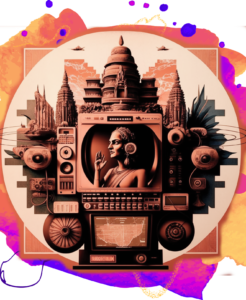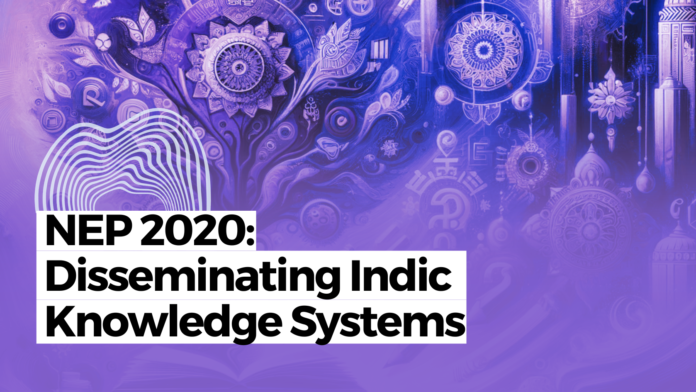Education policy refers to a set of principles, guidelines, and regulations formulated by governments or educational authorities to shape and govern the education system within a nation. It encompasses decisions regarding curriculum development, funding, teacher training, assessment methods, and access to education, among other aspects.
Education policy is crucial for a nation for several reasons. First, it plays a pivotal role in equipping citizens with the knowledge and skills necessary to participate in the workforce, fostering economic growth and innovation.
Second, it promotes social cohesion by ensuring equal access to quality education, reducing disparities, and enhancing social mobility. Additionally, education policy helps address societal challenges, such as improving health outcomes, reducing crime, and promoting democratic values. It also contributes to global competitiveness and fosters a skilled and adaptable workforce.
Ultimately, a well-structured and effectively implemented education policy is a cornerstone of a prosperous, equitable, and progressive society. More than all these aspects, an education policy and a nation’s education system determine the specific path of direction for that nation.
An education policy carries the ability to preserve the heart and soul of the nation. It is because it represents the memory of civilization, values, and core beliefs. Nearly seven decades after gaining independence, New Education Policy 2020 has given hope to recognize, revisit, and adapt the Indian knowledge systems into its curriculum. As the Ministry of Education acknowledges it as
“The Bhartiya way is sustainable and strives for the welfare of all. We must regain the comprehensive knowledge system of our heritage and demonstrate the ‘Indian way’ of doing things to the world. This requires training generations of scholars who will demonstrate and exemplify to the world a way of life so unique and peculiar to our great civilization. The NEP 2020 recognizes this rich heritage of ancient and eternal Indian knowledge and thought as a guiding principle. The Indian Knowledge Systems comprise Jnan, Vignan, and Jeevan Darshan and have evolved out of experience, observation, experimentation, and rigorous analysis. This tradition of validating and putting into practice has impacted our education, arts, administration, law, justice, health, manufacturing, and commerce. This has influenced the classical and other languages of Bharat that were transmitted through textual, oral, and artistic traditions. “Knowledge of India” in this sense includes knowledge from ancient India, its successes and challenges, and a sense of India’s future aspirations specific to education, health, the environment, and indeed all aspects of life.”
The Impact of NEP on India’s Educational Landscape and Vision for the Future
To strengthen any system with deep roots in its soil, it must gain the highest form of power to represent itself. In a democratic system, it lies in sustainable political strength and strong visionaries to implement the same.
In the last few years, Bharat has changed dynamically under effective leadership. One such bold step has been taken through NEP. In today’s consumer-driven society, materialistic values and pursuing material possessions have become increasingly prevalent. With the rise of consumerism, it is essential to examine the potential consequences of materialistic attitudes, especially in the context of educational environments.
The Indian educational system has its autonomy regarding thought processing and application. We have been able to observe the Gurukula system up until this point. Most students who have completed the current educational system lack a clear vision for themselves, society, and the country.
The education system is wholly responsible for a country’s strength. Education is a representation of a person’s inherent completeness. And this type of education was supposed to be given to the next generation. Many question the need for a change in educational policy. But the answer lies in its reliability and efficiency. To cater to the needs of a knowledge-based economy in the changing global scenario, changes were needed in the current education system. A policy that could help in global access to the Indian education system.
Adaptation of Technology in NEP and Development of IKS in the curriculum
The NEP emphasizes the use of technology in education and the creation of a digital infrastructure to support learning. This includes using online platforms, e-learning resources, and digital content to enhance the quality and accessibility of education. The policy calls for the establishment of the NETF (National Educational Technology Forum), which is intended to be a platform for sharing and creating digital resources for education. It aims to promote the use of technology in education and facilitate collaboration among various stakeholders in the education sector. Recently, the Indian Army, in partnership with the United Service Institution of India (USI), wrapped up a hybrid-panel discussion as part of Project Udbhav.
Project Udbhav is an initiative set in motion by the Indian Army to rediscover the profound Indian heritage of statecraft and strategic thoughts derived from ancient Indian texts of statecraft, warcraft, diplomacy, and grand strategy. Even in this area, IKS will play a significant role. As per the UGC draft this year, the IKS syllabus will include topics like Indian logic, Indian linguistics, Indian metallurgy, Indian architecture, etc. The University Grants Commission (UGC) has released guidelines to inculcate the Indian Knowledge System (IKS) in the higher education curriculum.
The University Grants Commission (UGC) recently launched Indian Knowledge System (IKS) online courses for undergraduate and postgraduate students. It has also introduced IKS in UGC-NET to encourage doctoral research in the same. This move comes in the wake of National Education Policy (NEP) 2020, which makes the incorporation of IKS at all educational levels one of its prominent tenets. In current times, these steps represent systematic efforts towards the revival of IKS.
Fragments of Indic knowledge have survived through oral traditions, manuscripts, and dedicated scholars, even when its preservation was threatened by a millennium of invasion and colonialism. After centuries of suppression, there has been a resurgence of interest and recognition of the value of traditional knowledge. The inclusion of ancient practices in school education, when facilitated by NCERT, will ensure that millions of students know India’s scientific legacy from an early age. We are aware that every system of education and every change in policy comes with its own challenges. But beyond these challenges, we can hope that NEP can be an aspiring disseminator of Bharatiya Jnana Parampara.


